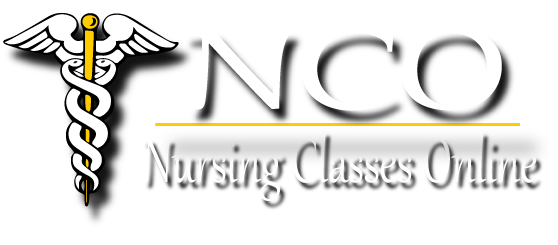Nursing Degrees and Certifications
With so many different areas for specialization, the nursing field may offer more types of degrees and certifications than any other sector of the healthcare industry. For aspiring nurses, this means that it is important to have career goals clearly mapped-out so as to ensure that they enroll in the correct type of nursing program and pursue the appropriate training. With that said, there are some broad categories of nursing degrees, diplomas and certificates that qualify their recipients to work in most general nursing settings.
Types of Nursing Degrees
Bachelor’s Degree in Nursing (BSN)
 A bachelor’s degree in nursing (BSN) is an academic degree that takes about four years to complete from an accredited college or university. Bachelor of Science in Nursing curriculums focus on preparing students to provide competent nursing care, supervise staff nurses, nurse assistants, and licensed practical nurses (LPNs), and assume leadership roles within the field.
A bachelor’s degree in nursing (BSN) is an academic degree that takes about four years to complete from an accredited college or university. Bachelor of Science in Nursing curriculums focus on preparing students to provide competent nursing care, supervise staff nurses, nurse assistants, and licensed practical nurses (LPNs), and assume leadership roles within the field.
Many states are pushing for BSN-prepared nurses because several studies have found a positive relationship between their education and lower mortality rates in patients (Van den Heede, et.al, 2009). This may be attributed to the graduates receiving more training in areas of critical thinking, leadership, and management, which are essential skills needed to meet the demands of the evolving healthcare system.
What Can You Do With a BSN?
A bachelor’s degree in nursing is for students who wish to pursue a career in nursing research, management, or obtain an advanced degree in the profession. BSN nurses have more options for career advancement than associate degree and diploma-prepared nurses. Many roles in healthcare call for a BSN-prepared nurse, but sometimes these requirements are dependent on the state of practice and the availability of nurses. Careers in school nursing, pharmaceutical sales, research, operating room, education, and management are some that tend to require a bachelor’s degree in nursing.
Associate’s Degree in Nursing (ADN)
The most-popular education track for becoming a registered nurse is currently the ADN program. These programs are popular because they are offered at community colleges and can be completed in two-to-three years. This means that ADN students spend less time and money on school and can work as an RN quicker than BSN students can.
What Can You Do With an ADN?
Career options for ADN nurses include hospitals, physician offices, community health care settings, agencies, and most patient care facilities. An ADN nurse who wants to pursue an advanced degree in nursing as a nurse educator, nurse anesthetists, or nurse practitioner must complete a RN-to-BSN program before applying to an advanced degree program.
Diploma Programs in Nursing
The original program for becoming an RN started with the diploma programs in nursing. Although there are only a few diploma in nursing programs that remain, most still operated within hospital settings. Diploma programs take 2-to-3 years to complete and are for students who do not want to pursue an advanced position in the field.
What Can You Do With a Diploma?
Career options for diploma prepared nurses include nursing positions with a primary emphasis on bedside patient care. For example, graduates of diploma nursing programs can work in hospital settings on acute, critical, or basic care units, in physician’s offices, or in the community health setting.
Certifications in Nursing
 With registered nurses making up the largest sector of the health care profession, achieving advanced certification in a specialty area gives RNs credibility, marketability, and authority within the health care field. In today’s market, a registered nurse can work online, for private duty clients, insurance agencies, hospitals, and in the field of informatics. The globalization of the health care makes obtaining certification as an RN an important part of career advancement.
With registered nurses making up the largest sector of the health care profession, achieving advanced certification in a specialty area gives RNs credibility, marketability, and authority within the health care field. In today’s market, a registered nurse can work online, for private duty clients, insurance agencies, hospitals, and in the field of informatics. The globalization of the health care makes obtaining certification as an RN an important part of career advancement.
Specialized Certifications
Obtaining certification in a specialty area is a great way to meet the growing demands of the health care field. Certification helps to advance an RN’s career in the following ways:
- Increases marketability
- Demonstrates expertise and specialization
- Shows dedication to the profession
- Improves quality of patient care
- Demonstrates professionalism
Multiple credentialing agencies provide RNs with the requirements, materials, and exams to obtain certification in a specialty area. Here are three common credentialing agencies:
- American Nurses Credentialing Center – is the largest credentialing organization for nurses in the United States.
- The Pediatric Nursing Certification Board – focuses on advanced certification in pediatric nursing.
- National Certification Corporation (NCC) – is an agency that certifies RN’s in areas of gynecology, obstetrics, and neonatal nursing.
Most certification organizations have several requirements an RN must meet before they can apply to sit for the certification exam. For example, the NCC requires that all RNs have at least two years of current working experience with a minimum of 2,000 working hours in the chosen specialty to be eligible to take the certification exam in inpatient obstetric nursing. Here are some of the areas where registered nurses can obtain certification.
- Medical Surgical Nursing
- Ambulatory Care Nursing
- Community Health Nursing
- Diabetes Management- Advanced
- Cardiac Rehabilitation Nursing
- Forensic Nursing- Advanced
- Home Health Nursing
- Nursing Case Management
- Pain Management Nursing
- Informatics Nursing
- General Nursing Practice
- Gerontological Nursing
- Pediatric Nursing
- Perinatal Nursing
- Neonatal Intensive Care Nursing
- School Nursing
- Psychiatric- Mental Health Nursing
References
Van den Heede, K., Lesaffre, E., Diya, L., Vleugels, A., Clarke, S.P., Aiken, L.H. & Sermeus, W. (2009). The relationship between inpatient cardiac surgery mortality and nurse numbers and educational level: Analysis of administrative data. International Journal of Nursing Studies, 46(6), 796-803.










